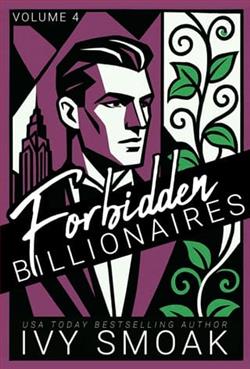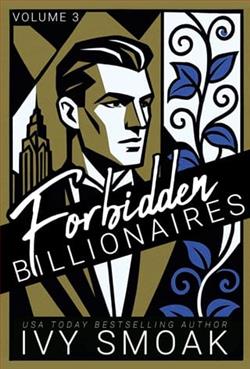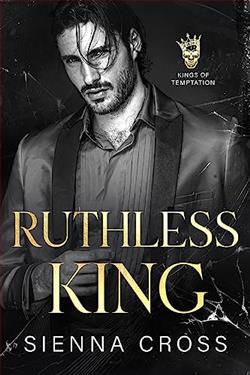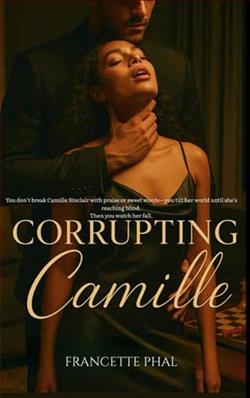Page 56 of The Venice Murders
‘They said they hadn’t,’ he interrupted, snappish in a way Flora had rarely experienced. It seemed that today’s meeting with his mother had affected him badly, getting beneath his skin when normally he refused to let her bother him.
‘They said they hadn’t, but they weren’t worried, were they? Didn’t you find that strange? I would have expected that at least Matteo, a close relative and a boy who must have spent many happy hours with his aunt, would have been extremely concerned at her disappearance. But he wasn’t.’
‘He also used the present tense,’ Jack recalled, his testiness fading.
‘How…?’
‘When Matteo spoke of his aunt, he used the present tense. I remember noticing. It might simply have been a language issue – or, it might be that, for him, she is still alive. It’s not a breakthrough as such. It takes time for people to accept their nearest and dearest might be dead, but it is a hint that he might know more.’
‘If he does, then Luigi Tasca knows as well. And he’s the one Father Renzi suspects of blackmail.’
‘I’m not convinced it is Tasca. Don’t you think he would have demanded more? He’s a convicted thief – maybe still a thief if he’s been stealing from Santa Margherita – and he must be used to “earning” much larger sums of money.’
‘Iwassurprised. The note mentioned a very modest figure. On the other hand, Tasca would know the priest’s circumstances. He’d know that Renzi couldn’t pay a great deal and decided it was sensible to settle for less, maybe pitching the demand just above what he thought he could get.’
‘Renzi hasn’t the money, but the Catholic church does.’ Jack’s scepticism hadn’t gone away. ‘It’s a very wealthy institution. Filomena has worked for the church most of her life, and the blackmailer could legitimately expect the authorities to dip their hands into what are very capacious pockets.’
‘But not if the priest was the target rather than the church,’ Flora said musingly. ‘Which means that whoever sent the note knows how close Filomena is to her employer, how many years they have been together, and how desperate Father Renzi would be to see the woman back safe and sound. Even if it’s not Tasca, it has to be someone close to the priest and his housekeeper. Someone who packed her bag before she disappeared!’
For a mile or two, there was silence in the car until Flora picked up the conversation as though it had never dropped. ‘If it was Luigi Tasca who sent that ransom note, he would probably have told his best friend. Which would account for Matteo using the present tense when talking of his aunt.’
‘If that’s the case, why hasn’t the boy rescued her? Why hasn’t he called the police himself?’
‘He’s scared? Luigi has something he can threaten him with? Or…’ She paused. ‘Matteo is part of the plot.’
‘To kidnap his aunt?’
‘That might have been accidental.’
‘Really?’ Jack shifted in his seat to look at her. ‘How can kidnapping an old lady be accidental?’
‘If she somehow found about the theft. She already knew that items had gone missing from the church and probably had a suspect in mind. Tasca. She could have been a danger to him.’
‘But this was an enormous painting,’ he protested. ‘Not small valuables. Luigi Tasca is a petty criminal, not an art thief.’
‘Luigi Tasca is a thief, full stop. He also had a grudge against the priest. Why not steal the painting that provided Renzi’s church with the money that keeps it going?’
Jack’s shoulders slumped. ‘And you think the situation isn’t hopeless! It strikes me as so confused, there’s no way of untangling it. If you’re right and Matteo knows what’s going on, knows that Luigi is the villain, there are others who might, too. Tasca senior, for example. They’re a solid little group, aren’t they? Is Enrico Tasca involved in the thefts – has he set up as a fence as well as a farmer? Or like Matteo might be, is he scared to speak out? Scared of his son? Does Luigi have something he can threaten him with?’
Flora settled back against the leather seat and allowed the breeze filtering through the half-open window to cool her cheeks. She felt overfull from the gigantic lunch, but frustrated, too. Jack was right to point out all the anomalies, all the annoying things that didn’t make sense. But that didn’t mean they should sigh and turn away. It didn’t mean they should give up.
‘We need to go back to the restaurant,’ she said purposefully. ‘Back to La Zucca. That’s where the final answer lies.’
‘This was not a good idea,’ Jack said, several hours later, as the waiter brought aperitifs to their table on the terrace of La Zucca. ‘But then I never thought it was.’
‘It’s not the best I’ve ever had,’ she admitted, ‘but coming here is the only thing that makes the slightest sense. In any case, we won’t be eating – after that lunch, I don’t think I’ll eat for a week – and we don’t need to stay for long.’
‘Just long enough to land ourselves in major trouble. I’m feeling uncomfortable already.’
As always, it was a beautiful evening, the air soft and warm and richly perfumed by the wooden troughs of freesias that bordered the terrace. In the distance, the shouts of gondoliers, hard at their evening’s work, and closer by, the gentle swishing of the canal against the quayside.
‘Uncomfortable? Really?’
‘I feel there are eyes everywhere and all of them trained on us,’ he explained.
‘I don’t see why.’
Flora was feeling chirpy. The evening was beguiling in itself, but it was the dress she’d chosen to wear that was the real boost. A daring red satin – an off-the-shoulder style, too! – that she’d bought on impulse a few days before leaving Abbeymead. She had kept it for their last evening in Venice, except that this was their last but one, but it made her heart sing and she would wear it tomorrow as well. Admiring glances had followed her, she’d noticed, as they’d walked to the restaurant from St Mark’s and Jack had been especially complimentary. That was something to hold close.















